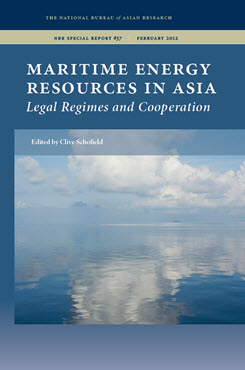Joint Development in Asia
Some Valuable Lessons Learned
This essay will examine joint development arrangements (JDA) in Asia and discuss the rationale for states entering into these JDAs, factors that influenced negotiations, and provisions that have contributed to the success of JDAs in Asia.
EXECUTIVE SUMMARY
This essay will examine joint development arrangements (JDA) in Asia and discuss the rationale for states entering into these JDAs, factors that influenced negotiations, and provisions that have contributed to the success of JDAs in Asia.
MAIN ARGUMENT
Despite contentious and seemingly intractable maritime territorial disputes in Asia’s waterways, states in Asia have frequently adopted JDAs to enable the interim utilization of hydrocarbon resources in areas of overlapping maritime claims. Seven Southeast Asian states and three Northeast Asian states have been party to at least one JDA in the region. That said, there are still unresolved and contentious overlapping claims in the South China and East China seas, where joint development remains an important and viable option. By examining why states entered into existing JDAs, what influenced the negotiations, and which provisions contributed to their success, this essay will ascertain whether there are any valuable lessons from existing JDAs that can be used in future joint development regimes in the region. Ultimately, this essay hopes to demonstrate that states have every incentive to enter into JDAs and, indeed, have been able to successfully establish functional cooperative regimes for the exploration and exploitation of hydrocarbon resources despite considerable political, practical, and legal obstacles.
POLICY IMPLICATIONS
- States enter into JDAs for a variety of reasons depending on their needs and circumstances at the time. These include the need for hydrocarbon resources, technical and capacity assistance for the effective exploration and exploitation of hydrocarbon resources, a secure investment framework for oil companies, and good bilateral relations as well as peace in the region.
- A variety of factors can influence the negotiation of JDAs, and states that are considering entering into JDAs should be aware of these factors and how to manage them so as to facilitate negotiations. These factors include actual knowledge of hydrocarbon resources, the absence of sovereignty disputes over offshore features, public perceptions of JDAs, good bilateral relations between the states concerned, and the political will of these states.
- In negotiating the detailed provisions of JDAs, states should agree on provisions that suit their particular circumstances, as there is no such thing as a model JDA. However, states should still examine other JDAs to ascertain what has been successful and what has not worked.


